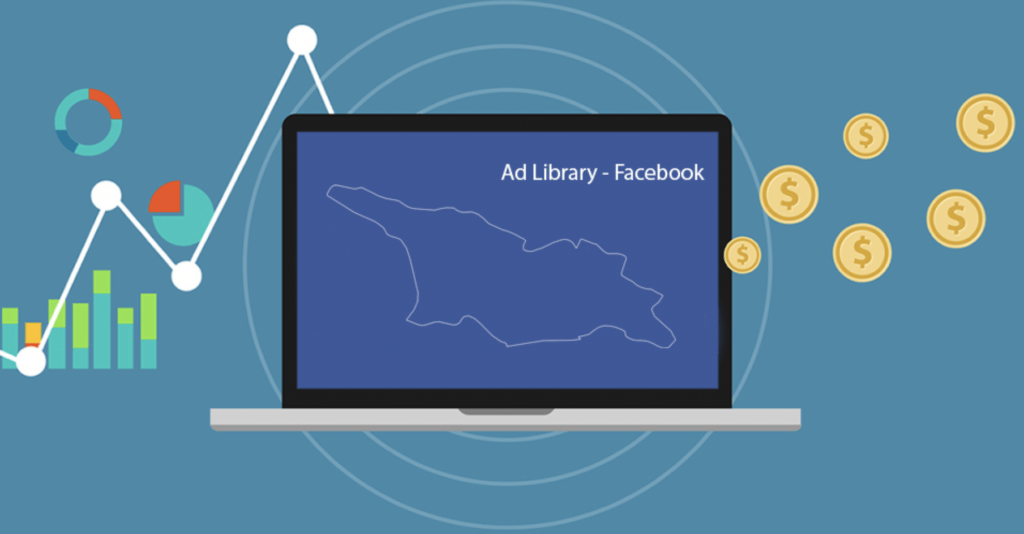On September 14, International Society for Fair Elections and Democracy, a local watchdog, reported on key political advertising trends on Facebook ahead of October parliamentary polls, noting that most political parties, leaders and majoritarian candidates have sufficiently met the newly imposed criteria for political ads. However, the CSO said, there are certain parties that have yet to adequately declare their information, adding that conducting smear campaigns by anonymous Facebook pages are still prevalent.
According to the watchdog, Facebook Ad Library first became available in Georgia on August 7, introducing a new set of requirements for political actors, wishing to advertise on the social media platform. As per the requirements, the advertiser has to undergo an authorization process, declaring their identity and providing a “Paid for by” disclaimer.
Citing a recent Facebook report, covering the period from August 4 to September 6, ISFED stated that during the time period approximately USD 193,465 was spent on political ads in Georgia, on a total of 4,607 ads.
Below are the amounts of money political parties and their related pages spent on ads:
- Strategia Agmashenebeli and Giorgi Vashadze spent USD 47,800
- European Georgia – USD 30,782
- Lelo – USD 21,747
- Georgian Dream – USD 20,421
- United National Movement – 6,678
- Alliance of Patriots – USD 4,663
Undeclared Ads, Discrediting Fake Media Pages
The watchdog also named parties that posted undeclared ads: Free Georgia; Georgian March – National movement; Euro-Atlantic Vector; United Georgia – Democratic Movement of ex-Speaker Nino Burjanadze; For Justice of MP Eka Beselia. According to the report, Euro-Atlantic Vector started providing disclaimers after August 30, but For Justice and Georgian March have yet to sufficiently declare their advertisements.
ISFED also found that some parties, that mostly adequately declare their information, have in some cases, posted undeclared ads. These are European Georgia, the United National movement and Aleko Elisashvili – Citizens. According to the watchdog, even though the Georgian Dream usually follows the requirements, supporters’ pages do not provide the required information, even though the administrator of the pages may be connected to the party members. For example, Davit Dugladze, who posts on “Support for Zaza Dugladze” and “41 is my choice” is the brother of a GD majoritarian candidate Zaza Dugladze.
The watchdog also identified 11 anonymous pages that sponsor posts aimed mostly at discrediting opposition parties. According to ISFED, the issue of anonymous and fake media pages is still prevalent, with these pages continuing to advertise without any declarations about funding and mostly targeting opposition parties.
The watchdog notes, that pages allegedly administrated by Bakur Svanidze, also advertise political content discrediting all parties in favor of the Kremlin-friendly Alliance of Patriots.
Another issue the CSO identified is one political actor advertising on various different pages, with different disclaimers “which complicates identifying the total cost.”
Targeted Audiences
The watchdog also outlined key takeaways regarding targeted audiences and demographics.
ISFED said the parties and majoritarian candidates usually select their targeted audience according to geographic locations. The CSO said Lelo for Georgia party addressed this method the most.
The watchdog found that the Kremlin-friendly Alliance of Patriots party targets most advertisements in Tbilisi and Adjara, with its anti-Turkish ads being viewed mostly by males. Another party, that targets its ads at males, is the ultranationalist Georgian March – National Movement, averaging a 86% male viewership.
On the other hand, the watchdog notes, that New Political Center – Girchi, targets its ads at people of the 18-35 age group, rarely targeting people more than 44 years old.
Some other findings include:
- European Georgia targets different age groups with ads on different party leaders.
- 12-37% of ads by Free Georgia and its leader Kakha Kukava, former conservative-turner-populist-left are geographically targeted at occupied Abkhazia.
- Labor Party leader Shalva Natelashvili targets the female audiences, offering them a “dignified maternity leave.”
- Euro-Atlantic Vector targets ads mostly at Tbilisi.
Also Read:
- ISFED Releases Third Interim Report on Pre-Election Environment
- ISFED Speaks of Inauthentic Pro-Alliance of Patriots Campaign on Facebook
This post is also available in: ქართული (Georgian) Русский (Russian)

